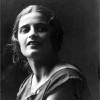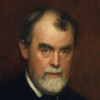“ He is free to do as he likes, but he is not free to do as he does not like; and a man’s likings are determined by outside things and by antecedents, pre-natal and post-natal, whose effect is so powerful that the individual who makes the choice proves to be only the resultant of certain forces which have been brought to bear upon him but which are not the man. ”
Samuel Butler, The Note-Books of Samuel Butler (1912). copy citation
| Author | Samuel Butler |
|---|---|
| Source | The Note-Books of Samuel Butler |
| Topic | choice force |
| Date | 1912 |
| Language | English |
| Reference | |
| Note | |
| Weblink | http://www.gutenberg.org/files/6173/6173-h/6173-h.htm |
Context
“It may be answered that throughout the foregoing chain of actions, the freedom, what little there is of it, is apparent only, and that even in the small freedoms, which are not so obviously controlled by necessity, the necessity is still present as effectually as when the man, though apparently free to walk to the gallows, is in reality bound to do so. For in respect of the small details of his manner of walking to the gallows, which compulsion does not so glaringly reach, what is it that the man is free to do? He is free to do as he likes, but he is not free to do as he does not like; and a man’s likings are determined by outside things and by antecedents, pre-natal and post-natal, whose effect is so powerful that the individual who makes the choice proves to be only the resultant of certain forces which have been brought to bear upon him but which are not the man. So that it seems there is no detail, no nook or corner of action, into which necessity does not penetrate.
This seems logical, but it is as logical to follow instinct and common sense as to follow logic, and both instinct and common sense assure us that there is no nook or corner of action into which free-will does not penetrate, unless it be those into which mind does not enter at all, as when a man is struck by lightning or is overwhelmed suddenly by an avalanche.”
source



